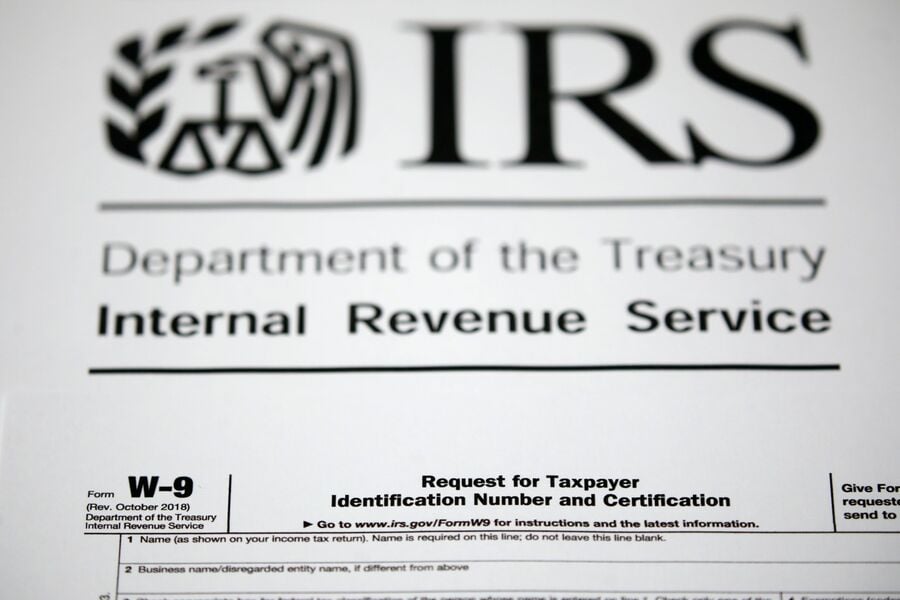

The House voted to repeal billions of dollars of Internal Revenue Service funding that Democrats approved last year, an issue that is likely to crop up repeatedly this year.
In the first vote on legislation with Speaker Kevin McCarthy at the helm, the chamber passed a bill on Monday night that would rescind most of the $80 billion President Joe Biden’s Inflation Reduction Act approved to bolster the agency’s faltering audit program. The legislation passed 221-210 on a party-line vote.
The IRS provisions in the crosshairs call for $80 billion to be spent over a decade to bolster auditing, customer service and computer systems. The clamor for repeal glosses over one big problem — it would actually cost the federal government, rather than saving it money.
The Congressional Budget Office on Monday estimated that eliminating the money to finance audits — $71.5 billion of the total $80 billion — would add more than $114 billion to the deficit over a decade because of the additional revenue that wouldn’t be generated from more audits.
The tussle over the IRS’ funding is a messaging bill for now — doomed to die once it’s sent over to the Democratic-controlled Senate, and Biden has already vowed to veto it if ever reaches his desk. Yet the issue is likely to become a bargaining chip at the center of upcoming debates over raising the debt ceiling and funding the federal government.
Republicans oppose the funding, saying the IRS is planning to use it to hire an “army” of 87,000 new tax agents. That figure has been widely debunked, but it keeps getting repeated because Republicans found some political success during last November’s midterm elections by promising voters they would try to stop an expansion of IRS audits by culling the agency’s funding.
Democrats say the funding is critical to revive the IRS’s enforcement capabilities that have slowly been eroded through a series of budget cuts.
“It’s clear that all the Republican talk about the deficits and debt is little more than an excuse to demand cuts to Medicare, Medicaid, Social Security and the other federal programs that lift up working Americans and sustain the middle class,” Senate Finance Committee Chairman Ron Wyden, said in a statement, calling the bill a “handout to wealthy tax cheats.”
House Republicans are already gearing up for a confrontation over the debt limit, which will likely be reached sometime this summer, requiring both chambers to act so the nation doesn’t default, spurring widespread economic consequences. Former President Donald Trump on Monday urged Republicans to play “tough” to extract concessions from Democrats.
IRS funding, which has mostly been an under-the-radar political debate in Washington over the past decade, could soon become a high-profile issue in showdowns over the debt and budget.
In 2013, after a scandal involving an IRS official singled out conservative groups applying for nonprofit status, Republicans saw a chance to rein in the agency and attempted to impeach then-IRS Commissioner John Koskinen. The GOP failed at that but was successful in enforcing waves of budget cuts when they controlled both the House and Senate.
The cuts forced the IRS to slowly pare back on audits of the wealthy, but the effects ultimately spread across the agency: Some tax refunds took years to process, and in time only 11% of calls to the IRS would reach a human customer service representative.

Wall Street leaders propose ways to monetize the mortgage giants.

A Texas-based bank selects Raymond James for a $605 million program, while an OSJ with Osaic lures a storied institution in Ohio from LPL.

The Treasury Secretary's suggestion that Trump Savings Accounts could be used as a "backdoor" drew sharp criticisms from AARP and Democratic lawmakers.

Changes in legislation or additional laws historically have created opportunities for the alternative investment marketplace to expand.

Wealth managers highlight strategies for clients trying to retire before 65 without running out of money.
Orion's Tom Wilson on delivering coordinated, high-touch service in a world where returns alone no longer set you apart.
Barely a decade old, registered index-linked annuities have quickly surged in popularity, thanks to their unique blend of protection and growth potential—an appealing option for investors looking to chart a steadier course through today's choppy market waters, says Myles Lambert, Brighthouse Financial.
